Jeanine’s Review: “Andor” Season 2 Doubles Down on Grit, Politics, and Purpose
Lucasfilm’s critically acclaimed thriller Andor, returns for its long-awaited second season on April 22, exclusively on Disney+.
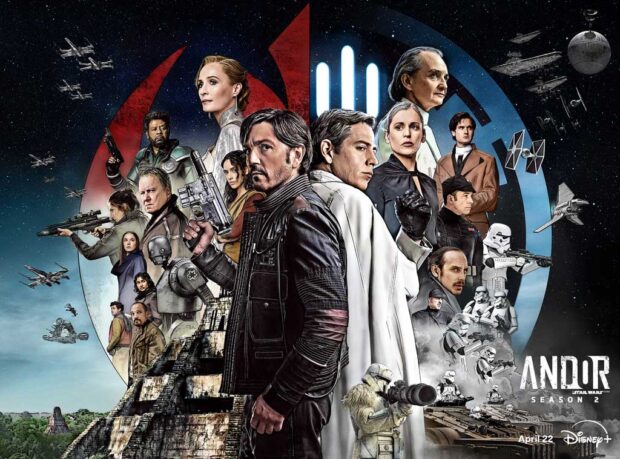
Season 2 of Andor picks up where the first left off—smart, sharp, and unapologetically grounded. It leans even harder into the moral gray areas of rebellion, delivering a slow-burn narrative with weight and urgency. This isn’t fan service or flashy lightsaber duels—it is espionage, sacrifice, and the cost of resistance. Diego Luna deepens Cassian’s evolution from reluctant survivor to committed insurgent, while the supporting cast adds layers to a story that packs a lot into only 12 episodes. If you came for stakes, tension, and drama, Andor still delivers.
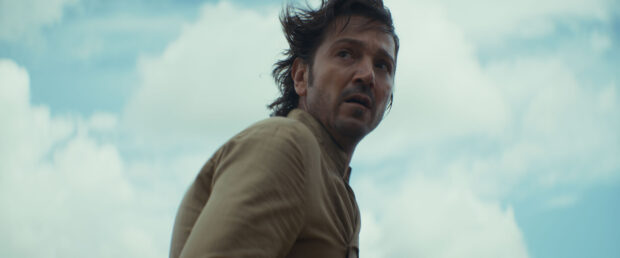
All the main characters from season one return, continuing their arcs that play out, moving them like chess pieces to where they need to be for the start of Rogue One. Senator Mon Mothma is still desperately trying to resolve her financial difficulties, while Bix and the rest of Cassian’s friends try to live a low-profile existence, recovering from the events of season one. On the Empire side, Dedra Meero and Syril Karn continue to move forward in their careers, each dealing with all the typical back-biting anyone working for a big organization might experience, while secretly nursing their own “Inspector Javert”-ish obsessive pursuits of Luthen and Cassian. All the characters feel even more well-rounded than in season one, thanks to more backstory and a keen attention to detail in both writing and performance. Diego Luna does a great job reinhabiting Cassian after almost a decade away from Rogue One, and showing us how he makes the choices and develops beliefs that lead to him becoming someone who can sacrifice everything for a higher cause. Stellan Skarsgård brings an air of mystery and menace to Luthen that is only compounded as the stressors of almost single-handedly initiating a galaxy-wide rebellion begin to take their toll on him.
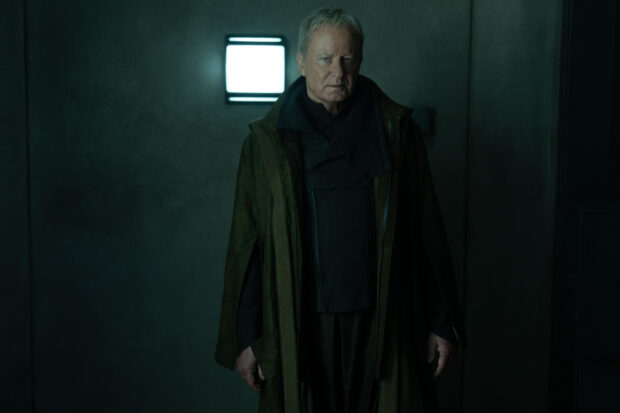
The standout, however, is Denise Gough’s Dedra Meero: Driven and meticulous, Dedra is every working woman out there, needing to be that much more aggressive and persistent to get the same recognition as her male counterparts. It is perhaps her need to give so much of herself to her position that leads to her devotion to the Empire and her deliberate choice to ignore the violent fascism it represents.
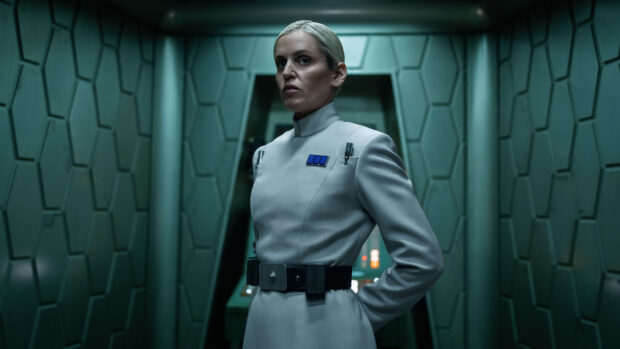
The series looks great, with a wide visual variety ranging from elaborate wedding ceremonies to damp tents out in the woods. While the world of Mothma may be elegant and refined, most of the people in Andor are living in pretty shabby conditions that give a real feel to the misery and poverty that accompanies life under the Empire. Whether in the industrial Ferrix, or the sophisticated vaguely-European Ghorman, each planet has a distinct look that contrasts markedly with the monocolor uniformity of the Imperial officers and their Stormtroopers that infest all of them.
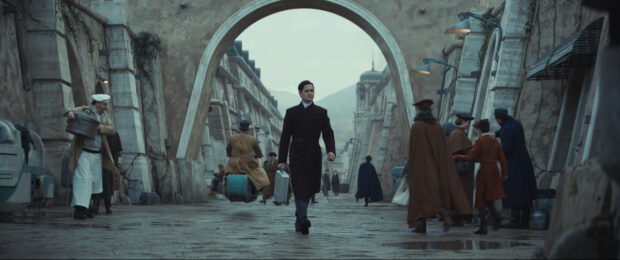
It’s telling that the show gets almost to the end before anyone gives out with the iconic “may the Force be with you” line. The people of Andor could not be further separated from the mystical world of the Jedi and the Sith and the spiritual Force that binds everyone together. They live in run down little high-rise apartments where, if you are lucky, you get a view of other skyscrapers, and if you are unlucky, you get Imperial agents busting down your door for reasons completely unrelated to you. The Force may have done wonders for the Jedi that existed in the lofty high council, but those days are long gone by the time of Andor where hokey religions aren’t going to put food on the table or help you negotiate trade agreements. Andor is the Lower Decks of Star Wars, showing how life was for the people who were maybe not the big heroes getting medals in formal ceremonies, but who still managed to alter the course of history through their own blood, sweat, and tears.
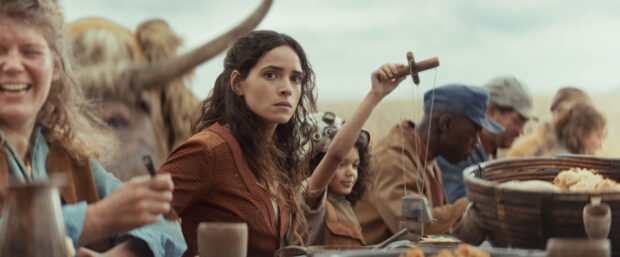
If there is any weakness to the storytelling here, it is that covering the remaining four years to Rogue One in 12 episodes makes for a lot of skipped time. While all the major players get tied up nicely by the end, there are a lot of characters that are introduced and have what seems like a significant part in an episode, only to never be seen again. Mothma, in particular, feels like she had a lot of narrative balls in the air that were dropped and then never picked up again. All is forgiven however, when everyone’s (and by “everyone,” I mean “me”) favorite droid K-2SO returns, voiced by the consistently droll Alan Tudyk.
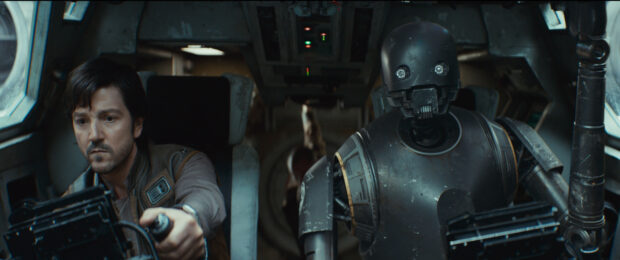
Some parts of Andor are difficult to watch, given that recent real-world events make it seem more like a documentary than anything happening in a galaxy far, far away. Harder still when you know both how Rogue One ends and then how subsequent films show the galaxy turning right around and embracing fascism again as if all that work and sacrifice was for nothing. Ultimately, Andor is not about winning a big success or a dramatic fall of the Empire, but it does manage to leave you with hope–hope that there are people out there who are willing to do the work and devote their lives to making things better for all people, and hope that despite so much violence and warfare and death, future generations will see better times than the ones before did. And rebellions, as Cassian might tell us, are built on hope.


